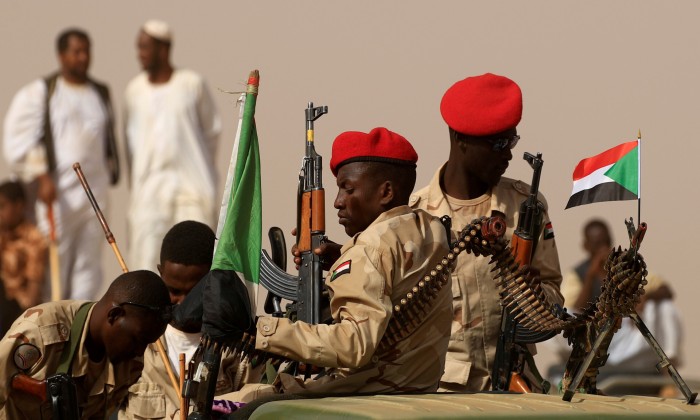
-
Published: 15 July 2023

Representatives of the Sudanese army returned on Saturday to the Saudi city of Jeddah to resume negotiations with the Rapid Support forces, while the war between the two sides entered its fourth month.
Edited by| Paul Mitchel
Politic section - CJ journalist
Sudan conflict news section
Khartoum – July,15,2023
A government source, speaking on condition of anonymity, said that "the delegation of the Sudanese armed forces returned to Jeddah to resume negotiations" with the Rapid Support forces, while the Rapid Support forces did not comment on the resumption of negotiations, announced by its Saudi and American sponsors last month suspended indefinitely.
The sending of representatives of the army to the "Jeddah negotiations" reflects its return to participate in diplomatic efforts aimed at a ceasefire, after it boycotted talks hosted by Addis Ababa last week, as the Sudanese Foreign Ministry announced its objection to the chairmanship of Kenyan President William Ruto quartet of the Association of East African states (IGAD), accusing Nairobi of siding with "Rapid Support."
Before the suspension of the" Jeddah negotiations", the American mediators expressed their disappointment due to the reluctance of the parties to work on a real truce, and observers say that Burhan and duqlo chose to fight a war of attrition, and each hopes to obtain greater concessions from the other party at the talks table.
Over the past three months, not a single day has passed for Khartoum residents without their homes being shaken by fighting and shelling, and to escape the war in the capital and the escalating looting, 1.7 million people have fled Khartoum, but millions are still inside their homes without any indications that the fighting can stop.
Witnesses in the north-west of Khartoum said that "clashes with all weapons continued today, Saturday, after violent battles that took place on Friday and led to the escalation of thick clouds of black smoke in more than one area".
The Sudanese Ministry of Health reported on Saturday that four civilians were killed and four others were injured in a Rapid Support Forces drone attack on a hospital in Omdurman.
However, the most violent fighting took place in the Darfur region in the west of the country, where a quarter of Sudan's 48 million people live, where entire villages and neighborhoods were destroyed in this region, civilians were buried in mass graves, local leaders were assassinated because of their ethnicity by the Rapid Support forces and allied Arab militias, and there were reports of atrocities, including sexual violence, prompting the International Criminal Court to announce the opening of an investigation into possible war crimes.
Although the fighting is concentrated in Khartoum and Darfur, new fronts flare up from time to time, especially in the south, where witnesses said a rebel group took control of an army base in South Kordofan on Friday.
More than 2.4 million Sudanese have been displaced from their homes to other areas inside Sudan, where they are suffering due to blocked roads, the collapse of the banking system and the scarcity of Health Services.
Humanitarian organizations have repeatedly called for the opening of safe corridors for the transport of aid and workers, and have previously warned that the rainy season, which began last June, could cause the spread of diseases.
Aid workers and health organizations announced during a meeting last Thursday the emergence of measles cases in 11 of Sudan's 18 states, in addition to 300 people infected with cholera or severe diarrhea and the death of eight of them," according to a statement issued on Friday by the Islamic Relief Organization.
The World Health Organization (WHO) said on Friday that "it is difficult to confirm reports of a cholera outbreak given that public health laboratories are not working".
The neighboring countries of Sudan, to which about 740 thousand have fled, according to the United Nations, fear the expansion of the conflict, and ICRC official Pierre dorbs said that the closure of the borders in South Sudan led to the emptying of a number of "supermarkets" and the deterioration of the already fragile humanitarian situation.
{source}<script async src="https://pagead2.googlesyndication.com/pagead/js/adsbygoogle.js?client=ca-pub-4474625449481215"
crossorigin="anonymous"></script>
<!-- moss test ad -->
<ins class="adsbygoogle"
style="display:block"
data-ad-client="ca-pub-4474625449481215"
data-ad-slot="6499882985"
data-ad-format="auto"
data-full-width-responsive="true"></ins>
<script>
(adsbygoogle = window.adsbygoogle || []).push({});
</script>{/source}
